Too Sick To Fly: Why Sick Passengers Don’t Stay Home
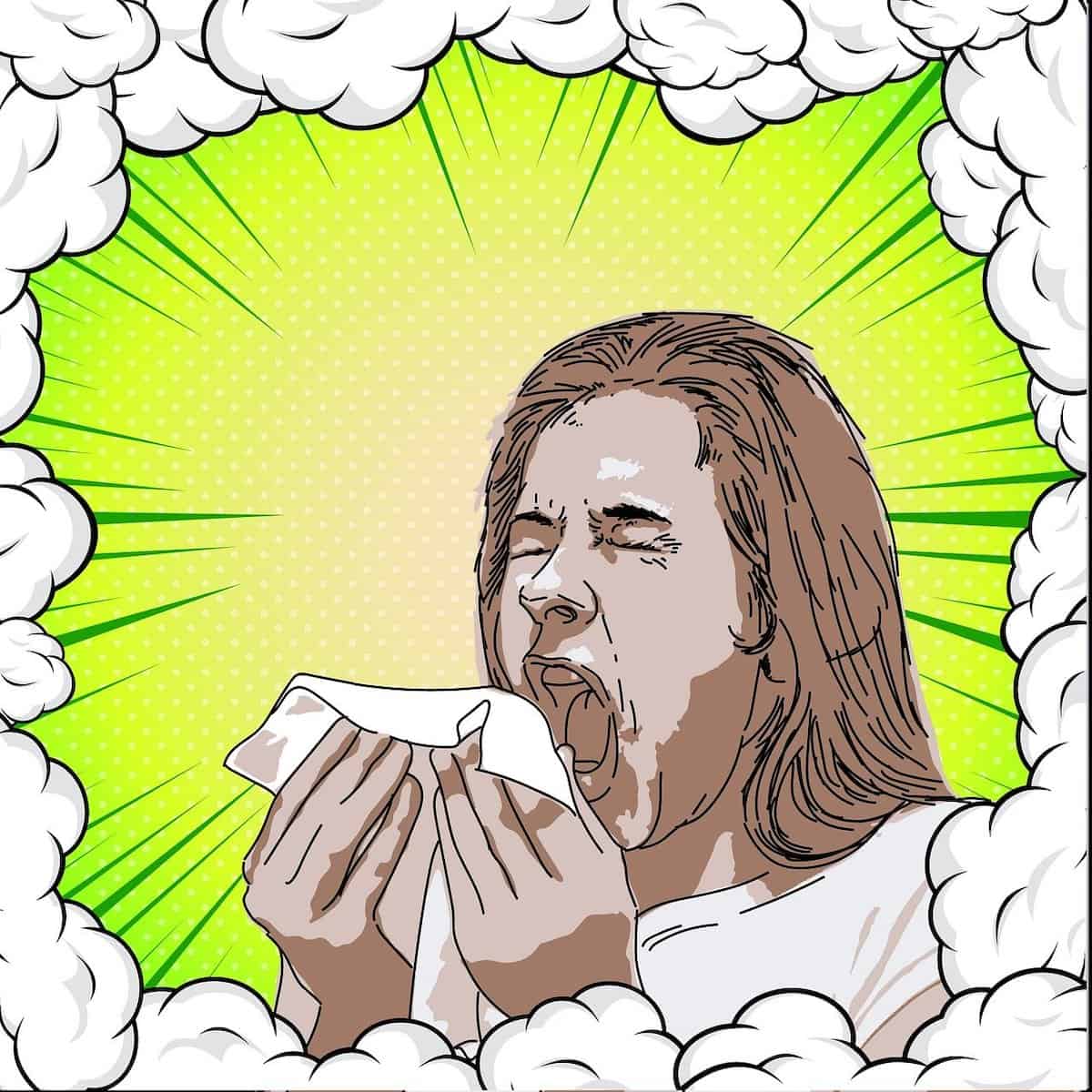
Many passengers are too sick to fly. However, airline policies, flight cancellation fees, and complacency (among both airline passengers and personnel) lead people to fly when sick.
Here are seven reasons why air passengers who are too sick to fly end up sitting next to you:
1- Passengers can be self-centered
The statistics above show that a good proportion of airline passengers elect to fly sick whether it’s for business or pleasure.
“I think people are selfish. It is all about their schedule, their costs, and they forget their own misery or risks to those around them,” says one fight attendant who didn’t want me use her name.
Additionally, passengers who contract COVID or another respiratory illness at their travel destination may be unable to afford or want to incur the costs of lengthening their stay (e.g., accommodations, meals, etc.).
2- Denial can interfere with decision-making
As opposed to being self-centered, some travelers tend to deny that they are sick.
They may not want to admit (even to themselves) that they have a communicable illness so they turn a blind eye to obvious symptoms.
For example, in the case of COVID-19, they decide not to test, although they know they’re symptomatic. (Costs tests can be another disincentive to testing.)
3- Airlines are loath to kick sick passengers off planes for financial reasons
While carriers have the right to deny boarding to a sick passenger, they rarely exercise that option.
“There is little incentive for airline personnel to go the extra mile and deny boarding for a sick passenger as that would create an empty seat and lost revenue,” says Alicia Jao, vice president of travel media for NerdWallet.com.
4- The outward symptoms of communicable diseases aren’t always apparent
Understandably, airline personnel can’t always discern whether someone has symptoms of a common cold, or a more serious and contagious respiratory disorder, such as COVID, RSV, pneumonia or influenza, or even chicken pox (which can look like acne).
Even when gate employees or flight attendants have suspicions, they may turn their heads because they really can’t be sure and don’t want to have to deal with combative passengers.
During a pandemic or public health crisis, there is a higher state of vigilance, but attitudes towards flying sick generally slacken and become more relaxed afterward.
“We heard about numerous cases of feverish-looking people being told to travel another day during the H1N1 pandemic of 2009,” says Rick Seaney, CEO of FareCompare.com.
Since then, when was the last time you saw a fellow passenger confronted by airline personnel and asked to leave a plane for flying sick since then?
5- Flying when sick is not against the law
No laws prohibit flying when sick, and most countries have no entry restrictions regarding respiratory illnesses.
CDC public health guidelines and airline policies generally recommend that travelers (who recently had COVID) test negative for at least 5 days and wear masks while flying. However, these are merely recommendations. There are no legal obligations to test for the virus, disclose test results, or wear masks as a preventive measure.
Yet, there are ethical concerns associated with flying with a communicable illness and putting others at risk.
On an airplane (and at airports), sick passengers are likely to be in close contact with high-risk groups including seniors, pregnant women, and immunocompromised individuals. (The risk of severe illness and death is greater for these individuals than it is for the general population.)
6- Overly restrictive airline policies encourage passengers to fly while sick
“With some airlines, it’s the policies themselves that motivate people to fly when they’re sick,” says Andrew Schrage, co-founder of MoneyCrashers.com.
While many airlines had liberal cancellation policies during the height of the pandemic, this is no longer the case. At this point, full refunds are very unlikely.
However, many airlines (although not all) are allowing travelers to change the dates of their flight, and have dropped onerous change fees.
7- Rebooking can be challenging
Flight cancellation fees can be punishing. Moreover, given the increasing scarcity of seats on many routes, a replacement flight may be expensive, hard to rebook, or non-existent.
This provides compelling practical and financial incentives for many people to fly despite being ill.
Precautions travelers can take to protect themselves from getting sick when flying
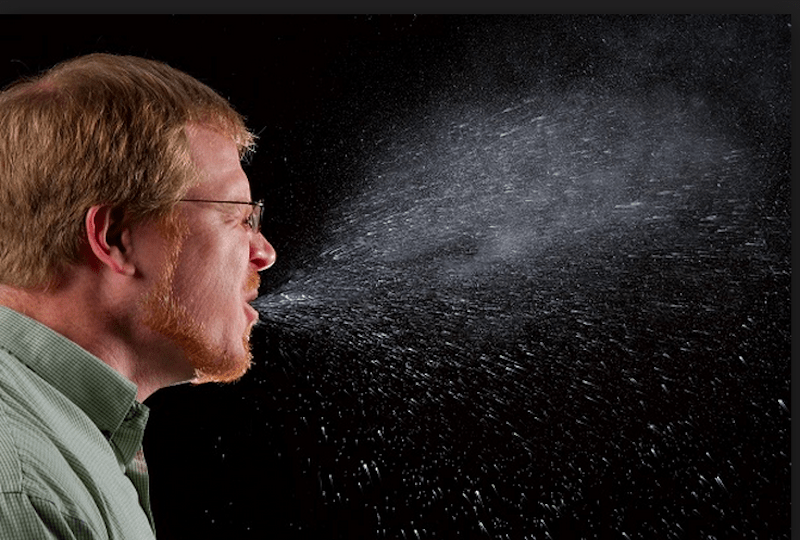
Given all the perverse incentives for flying while sick, what can a traveler do to protect him/herself?
- At least two weeks before you travel, make sure your vaccinations (e.g., COVID, RSV< flu, pneumonia) are up-to-date.
- Consider trip cancellation insurance but assess the cost and read the small print.
“Trip cancellation (Cancel for Any Reason Coverage [CFAR]) will reimburse travelers up to 100% of trip costs if they are ill. Cancellation due to sickness is always a covered reason, as long as travelers provide documentation from a doctor which states they were unfit for travel,” says Jessica Bell, a spokesperson for Squaremouth.com.
“If a traveler is already ill and they know they will have to cancel their trip, it is too late to buy trip cancellation insurance,” says Steve Dasseos, president of TripInsuranceStore.com. “It’s like wanting to buy fire insurance when your house is on fire.”
Some insurers, like Allianz, offer Epidemic Coverage Endorsements on certain policies that may pick up some of the costs of canceling a trip.
- If you think you may have been exposed to a bug that will render you too sick to fly, check out specific airline waiver policies before you select a carrier, or consider purchasing an unrestricted, totally refundable ticket (These may be unaffordable but you sometimes snag them using frequent flyer miles).
- Reconsider your decision to fly. If you know you have a highly contagious illness, be sensitive to the possible effects on other passengers who may be young, aged, or immunocompromised. Also, think about how ill and uncomfortable you may begin to feel during the flight. If you are unsure, check with a healthcare professional.
Boarding a plane while sick poses both risks for you and is unfair to other passengers and crew.
- If you think the person next to you looks too ill to fly, ask the flight attendant to change your seat. When seats are available, airline personnel will usually try to honor your request.
- If no other seats are available and you’re stuck next to someone who seems sick, mask up, limit conversation, and try to face away from the individual.
Have you ever sat beside someone who seemed too sick to fly? What did you do?
This article has been substantially updated with new information since its initial publication. Also on MoreTimeToTravel: How to avoid catching a cold next time you fly
Save to Pinterest!!
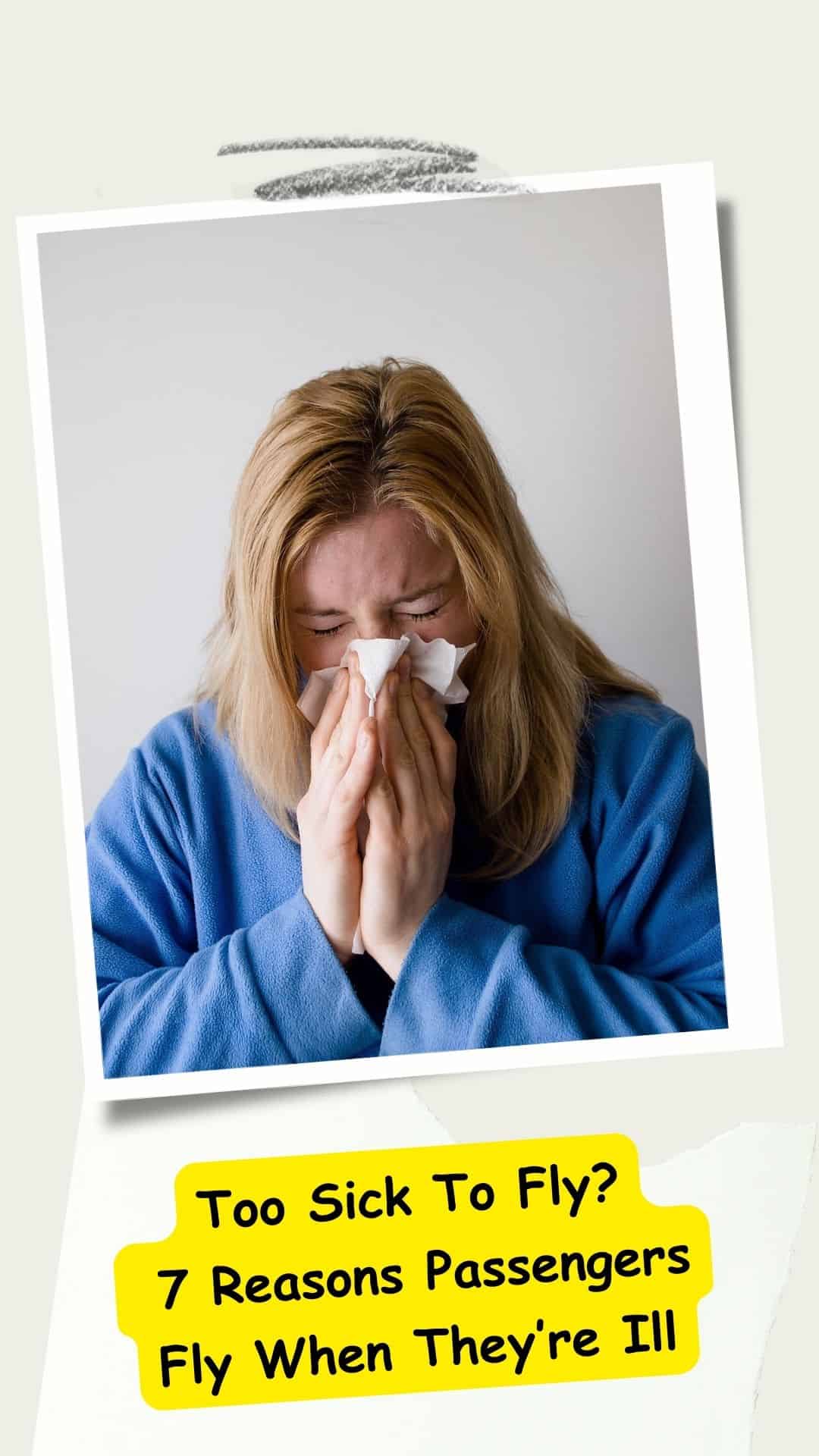



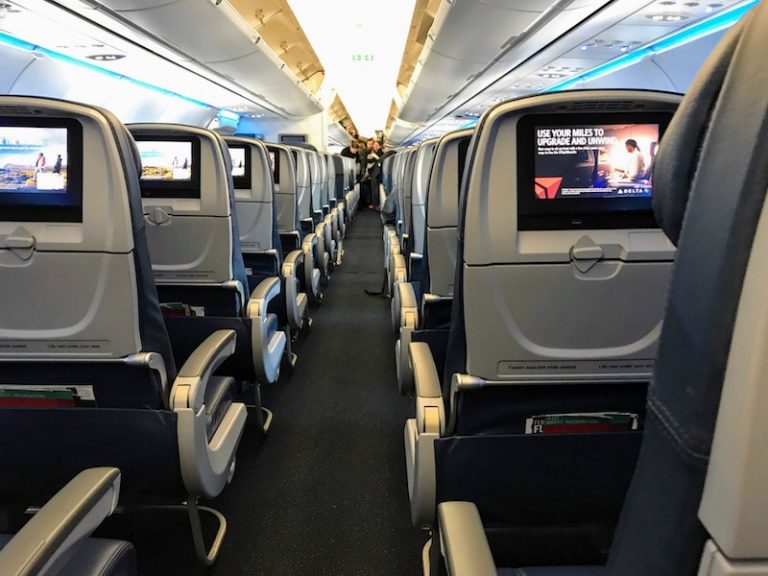
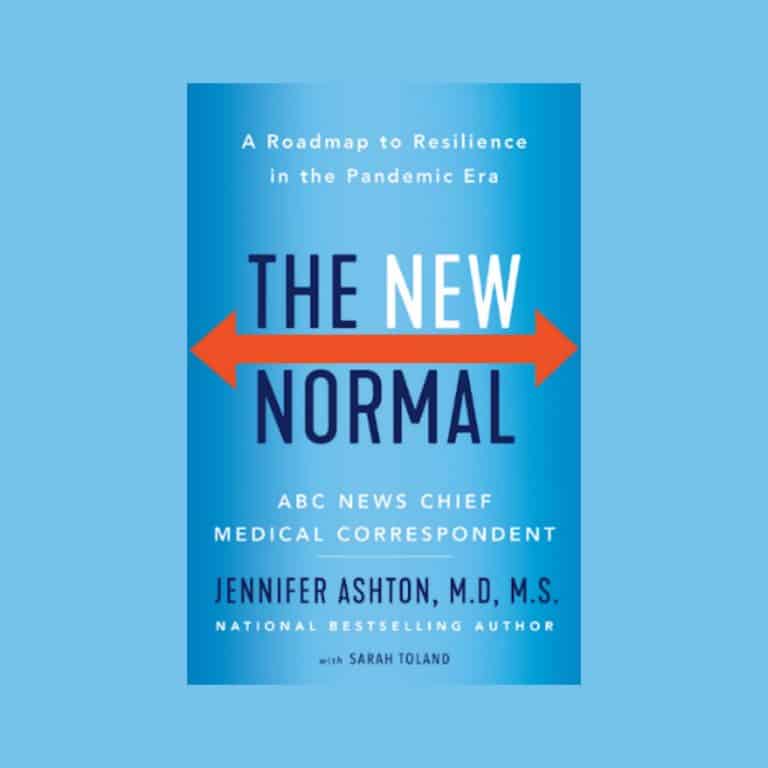

This is really a problem and for so many reasons that you list. Maybe we all need to carry portable masks…or perhaps they should be standard fare, along with vomit bags. Short of that happening, I think that if you are caught sitting near someone who is sick and you can’t change your seat, you need to make sure to wash, wash, wash your hands and bring along some antibacterial wipes. And do a lot of positive self-talk (“I won’t get sick…I won’t…I won’t…”)
Hey! Great article! I don’t know about you, but there is no way I am taking one of those flu shots you mention though! They can do more to harm your immune system than good, IMHO. I do try to avoid all hacking passengers though!
Unless people buy insurance or fly with a carrier like Southwest which allows credits for cancelled flights- most can’t afford not to fly sick. I wear a personal ionizer that cleans the air I breathe on planes. I’ve found it makes a difference in terms of catching thinks. Airlines can mitigate the problem by putting in hepa-filters but the retro-fit is big $$$$.
I’ve really cut back my air travel and here’s one of the reasons!
Would be nice if really sick people could stay home… But having someone with a cold on a flight seems to be just one of the health hazards of flying, unfortunately.
I can’t argue with these points. For sure, many people fly when sick because of the restrictive and costly policies of the airlines. I agree that getting vaccinations like flu shots are very important. I think my annual flu shot has helped me many times over the years flying next to sick passengers.
The last few times I’ve flown, I’ve ended up becoming ill soon after flying — head cold, stomach virus. I can’t swear I caught whatever in the air, but obviously, it’s a good bet that’s where I contracted my viruses. Sitting in economy on an airplane, one really does feel like one is sitting “cheek to germ”. I wonder if the masks everyone seems to wear in Japan are helpful and do you wear them when you’re the sick one or to protect yourself from sick people, or both?
Interesting question, Suzanne. Apparently, people in Asia wear the masks as a courtesy to protect others—and they are somewhat effective:
http://zidbits.com/2011/12/why-is-common-to-see-people-wearing-surgical-masks-in-asian-countries/
In January I purchased a well prices ticket to Brazil, from Flight Hub,where I was to go to visit in March. I did and also purchased cancellation for abot $100. As a travel writer, I’m always concerned about getting ill away from home but I’ve been very lucky..that is until this trip from March 22 to April 4. When I became ill I went to the tourism office in Natal where their phone and computer weren’t working. The only place to get a ticket home (Toronto) was at the new airport which from Natal is about 1 hour. Other than TAM, not one other airline counter was open. Marta couldn’t speak English. I recruited wonderful Kalenka but even she could make Marta understand that she had to cancel my ticket home and sell me another. Under the circumstances I took what I could get and that was a $2000.00 until New York (one way) and then had to go to La Guardia for a $300 to fly to Toronto. At JFK, they wanted $1200 for one way to Toronto. The problem is that TAM and Flight Hub are sayinng that I didn’t tell them I wanted my ticket canceled..which I most certainly did but not in writing. Even with the policy, I am having a terrible time trying to get some of my money returned. What’s the point of cancellation policy if the fine print is SO fine that it’s impossible to know whether I’ll ever see any money returned. Should this be brought to some in IATA. I did speak with a superior at TAM and he was rude, unwilling to discuss the situation. I was in Brazil for 4 days and had to return home. Any suggestions about cancellation policies. To buy or not to buy, that’s my question? B. Kingstone
So sorry to hear about your illness and the difficulties you encountered with your cancellation policy. I’ve never purchased trip cancellation insurance so can’t help you on that end. Christopher Elliot acts as a consumer advocate and watchdog. You might want to pose your question on his website.
Best, Irene